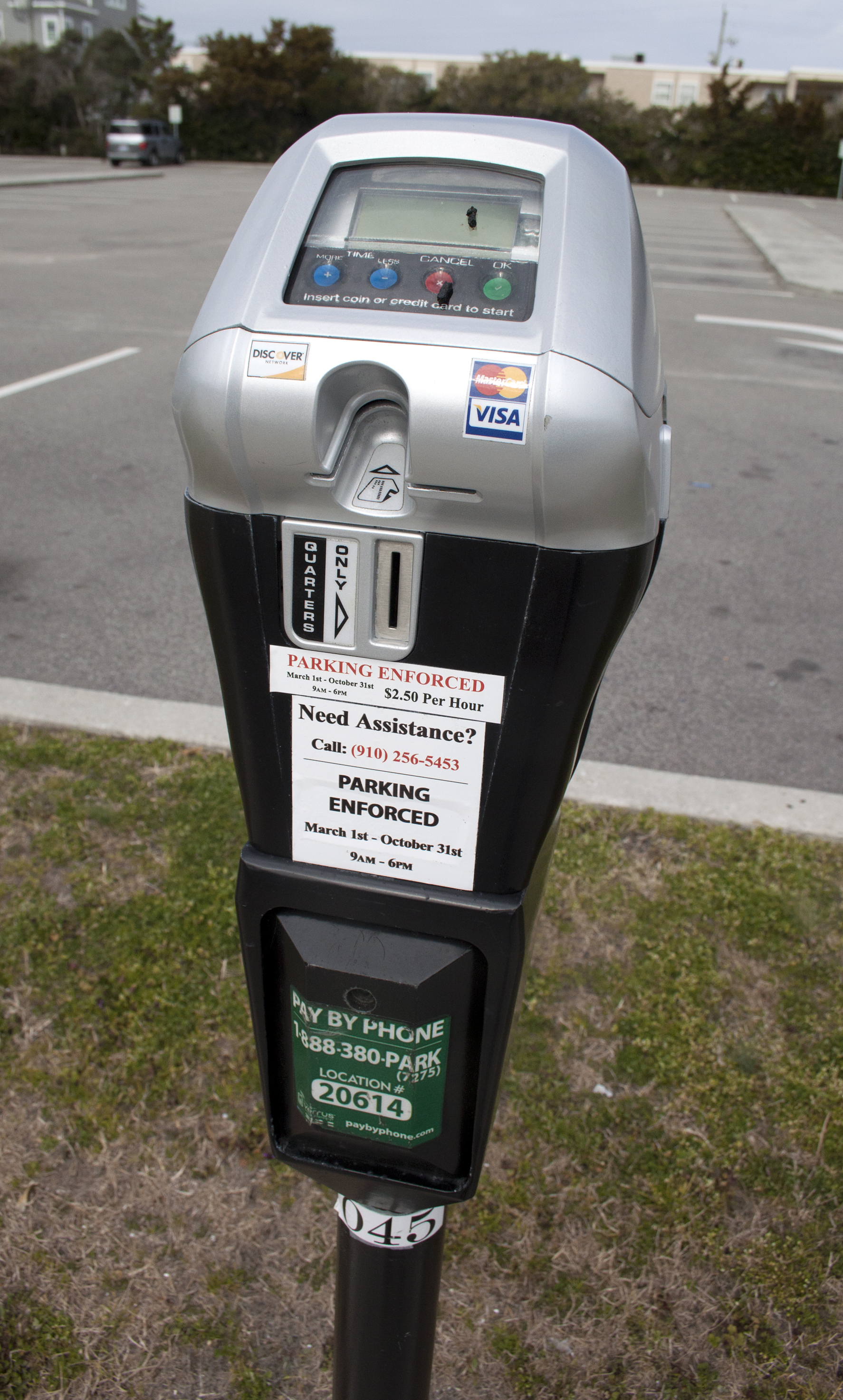After metering more parking spaces around town and increasing the price of parking passes, Wrightsville Beach made 7.87 percent more parking revenue this fiscal year than last.
Meter revenue was up six percent, citation revenue was up 11 percent and residential permit revenue was up 44 percent, Lanier Parking Solutions area manager Bryant Sykes told the Wrightsville Beach Board of Aldermen during a July 20 meeting. The town’s total parking revenue this year was $2.8 million compared to $2.6 million last year.
Much of the extra meter revenue came from the newly metered areas around town like the Harbor Island business district. Last July, the town started metering Old Causeway Drive, and this March it started metering Keel Street and Marina Street.
Another newly-metered area that created revenue was Wrightsville Beach Park, but that revenue came mostly from citations. The town made $4,812 from in meter revenue and $10,310 from the 717 citations written.
“That’s higher than I expected, and higher than we probably want,” town manager Tim Owens said.
He hopes the number of citations will taper off as people become accustomed to the new regulations. Several signs around the park inform visitors of the rules: pay stations allow two free hours, but visitors must still place a receipt on their dashboard to avoid being cited.
“I think the signage is sufficient,” he said. “I think people are starting to understand now what you’re supposed to do.”
The town created the regulations to discourage beachgoers from parking in the lot all day, and the number of two-hour receipts sold indicates the regulations worked, Sykes said. The park’s pay station sold 1,493 multiple-hour or all-day receipts and 16,469 free receipts.
“The vast majority of people are using this as it was meant to function,” he said. “They’re getting their two free hours to run the loop or play basketball.”
When Sykes presented the 44.93 percent increase in revenue from residential parking passes, Mayor Bill Blair observed, “That’s a big jump.”
But it was expected, Sykes said, after the town increased the price of a residential parking pass from $25 to $35.
The town uses some revenue from its parking program for tourism-related costs like extra summer police presence, beach strand trash collection vehicles and employees and general maintenance of bathhouses, lifeguard stands and beach accesses. Five hundred thousand dollars goes back to Lanier Parking Solutions—$485,000 of that paying operating costs and $15,000 capital costs.
But the biggest cost for which the town needs more meter revenue is beach renourishment. Currently, the federal and state governments fund each $10 million beach renourishment project, but local beach towns have been warned they should start saving to fund their own projects because they might not get help much longer.
This year, Wrightsville Beach will put $500,000 of its parking revenue in its beach renourishment fund—the most it’s ever set aside. Earlier this year, when deciding whether to implement the additions to Wrightsville Beach’s parking program, Blair called the prospect of funding beach renourishment “the single biggest problem we’ve had laid at our doorstep.”




